I’m thrilled to announce that Bedard Law Group is the new sponsor for the Compliance Digest. Bedard Law Group, P.C. – Compliance Support – Defense Litigation – Nationwide Complaint Management – Turnkey Speech Analytics. And Our New BLG360 Program – Your Low Monthly Retainer Compliance Solution. Visit www.bedardlawgroup.com, email John H. Bedard, Jr., or call (678) 253-1871.

Every week, AccountsRecovery.net brings you the most important news in the industry. But, with compliance-related articles, context is king. That’s why the brightest and most knowledgable compliance experts are sought to offer their perspectives and insights into the most important news of the day. Read on to hear what the experts have to say this week.
N.J. Senate to Vote on Bill Restricting Collection Activities
A number of coronavirus response bills were introduced yesterday in the New Jersey Senate and will be voted on this coming Monday, in the chamber’s first-ever remote session. Among the bills is S.2330, the “COVID-19 Financial Security for Consumers Act,” which, among other provisions, would include restrictions on debt collection activities. More details here.
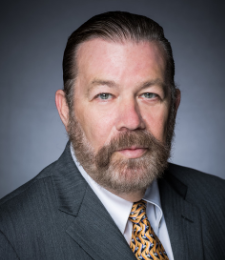
WHAT THIS MEANS, FROM MITCH WILLIAMSON OF BARRON & NEWBURGER: For those of you that seek to collect past due accounts in New Jersey, you may have dodged a bullet. On Monday, April 13 the New Jersey state senate had a second reading of Senate bill 2330, the “COVID-19 Financial Security for Consumers Act.” (Assembly Bill 3908)
In the form presented to the Senate, virtually all collection activity would have been shut down. However this past Wednesday, the bill’s sponsor submitted an amendment which eliminated from the proposed bill the section which contained restrictions regarding general collections. The deleted section barred almost all collection activity other than accepting payments on plans previously instituted and any new voluntary payments.
With the proposed amendment the scope of the bill is limited to medical debt. The bill is directed both at debt collectors and creditors. Another hearing on the bill and its proposed amendment is not likely to occur until late in the week of April 20th.
The time frame of the bill is defined as the “covered coronavirus period” – from the date of the Governor’s Executive Order 103 of 2020 until 120 days after that Order is rescinded. While the bill offers a definition of an “Affected person” stating it “means a person who is a resident of this State and has suffered financial hardship as a result of the coronavirus disease 2019 pandemic,” the requirements contained in the bill do not appear to rely on this limitation. Additionally, I find this definition to be less than clear, and therefore should the bill be passed I would ignore it to the extent it serves as a limiting factor and consider all medical debt to be effected.
The restrictions are primarily limited to two areas, collection through legal action (lawsuits etc) and credit reporting. And the good news is that there is not a blanket bar on taking legal action.
The highlights – no legal action (suit or post judgment executions) until 180 days after the first bill has been sent. So my reading (at least as to the current verbiage) is that dunning letters or calls are not prohibited during the 180 day period which includes the pre-default time in its calculation. At least 30 days before any legal action is taken, the collector or creditor must provide the debtor with information regarding possible financial assistance, specify what remedy they intend to seek to enforce (i.e file a lawsuit, levy on a bank account, place a lien on real property) and provide a deadline when the action will be taken (while not stated it would make sense that they want to allow the debtor to have a last opportunity to forestall the intended action.)
Legal actions may not be initiated “unless the action is described in the creditor or collector’s billing and collections policy.” This is a potential landmine. Does it mean the intake forms merely have to say “we reserve the right to seek all of our legal remedies in the event of default?” Or does each specific remedy need to be listed?
No sales of medical debt unless as part of the sale, the buyer agrees to comply with the requirements of the bill, and agrees to return the debt if it is determined that the debtor is eligible for financial assistance.
Credit reporting is barred for one year from the date of the first bill provided to a consumer. Prior to reporting either the creditor or the collector must provide one last bill to the debtor and advise the debtor that the account is scheduled to be reported. Additionally, the debtor must be provided with the validation notice required under 15 U.S.C. §1692g prior to the account being provided.
What happens if you violate the section, a fine of up to $5000 plus reasonable attorney fees. There is also a provision for a damages award of up to 25% of the debt sought to be collected, with the minimum being $350. There does not appear to be a requirement that the damages need to be proven or actual.
Medical debt is not a defined term and therefore I would say it is not confined to that deriving from the corona virus. My recommendation for those collecting medical debt is to wait and see what the final form of the bill is when passed (something will get passed) and then be prepared to review all of your practices and procedures to make sure they comply.
In the deleted section, there is a provision which states that a lawsuit may be filed if it would otherwise be barred by the expiration of the statute of limitations as provided in N.J.S.2A:14-1 or N.J.S.12A:2-725. It allows he action to be commenced but requires notice to the debtor that there will be no attempt to collect the debt or report it to a bureau during the period covered under this bill. This provision is not also included in the section discussing medical debt but I assume it will be added.
THE COMPLIANCE DIGEST IS SPONSORED BY:

Second Circuit Joins Ninth Circuit in Definition of ATDS Under TCPA
The Court of Appeals for the Second Circuit has overturned a lower court’s summary judgment ruling in favor of a defendant who was sued for violating the Telephone Consumer Protection Act for allegedly sending text messages using an automated telephone dialing system. The Second Circuit, in joining the Ninth Circuit Court of Appeals, determined that an ATDS is defined as technology that has “the “capacity . . . to store or produce telephone numbers to be called, using a random or sequential number generator.” More details here.
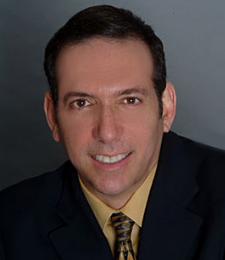
WHAT THIS MEANS, FROM DAVID KAMINSKI OF CARLSON & MESSER: The Federal Circuit Courts are aligning themselves in two camps regarding the ATDS definition.
Prior to the Second Circuit’s recent decision in Duran v. La Boom Disco, Inc., the Third, Seventh, and Eleventh Circuits concluded that a telephone system must have the capacity to randomly or sequentially generate numbers to constitute an ATDS. (See Dominguez v. Yahoo, Inc., 894 F.3d 116 (3d Cir. 2018); Gadelhak v. AT&T Servs., Inc., 950 F.3d 458 (7th Cir. 2020); Glasser v. Hilton Grand Vacations Co., 948 F.3d 1301 (11th Cir. 2020).) These three Federal Courts of Appeal clearly struggled with the ATDS definition, but noted that the language of the statute compels them to rule as they did.
In contrast, the Ninth Circuit held that a system that contains number-generation capacity, and a system that can autodial numbers from a stored list, can constitute an ATDS. (See Marks v. Crunch San Diego, LLC, 904 F.3d 1041 (9th Cir. 2018).)
In Duran, the Second Circuit chose to follow the Ninth Circuit’s decision in Marks, and found that a system that has the capacity to store numbers and the capacity to autodial such numbers without human intervention is an ATDS.
The Marks/Duran interpretations have been criticized as being too broad and it is unlikely Congress intended the TCPA’s scope to be so broad. Courts are required to interpret statutory language as written. But, many courts have noted that interpreting the statute as written does not make sense. In this regard, the Second Circuit in Duran expanded on a salient point made in Marks: That the TCPA’s government debt exception, for example, providing that an ATDS may be used in order “to collect a debt owed to or guaranteed by the United States” only makes sense if the ATDS definition includes equipment that can autodial from a stored list. As explained by the Second Circuit, the government debt exception would not be necessary if the scope of the TCPA is limited to calls derived from random or sequential number generators, as the government would never use a random and sequential number generator to call debtors who owed them money. This is a point that has to be reconciled, and hopefully by the Supreme Court.
With a clear Federal Court of Appeal split as to the interpretation of an ATDS, Supreme Court review of the ATDS definition is inevitable. As I noted in a previous post, the Supreme Court could invalidate the entire TCPA before it resolves the ATDS interpretation split after it hears oral argument in May 2020 in Barr v. American Association of Political Consultants, Inc. Never before have so many hot button issues affecting our industry been at the fore as they are now.
Appeals Court Overturns Sanctions of Plaintiff’s Attorneys in FDCPA Case
The Court of Appeals for the Fifth Circuit has overturned a lower court’s ruling that had placed sanctions on the attorneys representing a plaintiff in a Fair Debt Collection Practices Act case for not settling a lawsuit quickly enough, but affirmed a ruling that the District Court judge was not biased against the plaintiff. More details here.

WHAT THIS MEANS, FROM MICHAEL KLUTHO OF BASSFORD REMELE: Close, but no cigar!
The 5th Circuit took away a sanction award against the consumer’s attorney. The District Court Judge understandably was fed up with “lawyer-created” claims, but ultimately did conclude there was a technical violation of the FDCPA in this case. But because it was the attorney who created the technical violation, with carefully crafted letter sent to the involved Agency, the plaintiff’s fee request was rejected even though statutory damage were awarded. Instead the court awarded sanctions in favor of the Agency and against the Plaintiff’s attorneys. All was great until the 5th Circuit took it away.
The appellate court held that Rule 11 was inapplicable given the context of when the award was made, and the procedural requirements of the Rule. Likewise, the appellate court reversed the award of fees made under the FDCPA concluding such fees could only be awarded against the consumer plaintiff, and not the consumer’s attorney. Interesting interpretation of the FDCPA fee-shifting provision.
Ultimately the court reversed and remanded instructing the District Court to determine whether and how much fees to award Plaintiff’s attorneys when it comes to its fee petition (that was ignored prior to the appeal based on the sanctions that were meted out). What’s going to be very interesting on remand will be how the “now reversed” District Court Judge decides the plaintiff’s fee request given that the 5th Circuit rejected Plaintiff’s attorney’s attempt to kick the Judge off the case for alleged bias. As Ralph Waldo Emerson instructed – “When you strike at a king, you must kill him.” Plaintiff’s strike metaphorically missed its mark. Close, but no cigar. Now we wait for the rest of the story.
Plaintiff Argues ‘Ship Has Sailed’ on Ninth Circuit’s ATDS Definition
The plaintiff in a Telephone Consumer Protection Act case is urging the Ninth Circuit Court of Appeals not to undo its definition of an automated telephone dialing system, saying that “ship has sailed,” even though other Courts of Appeals have ruled otherwise. More details here.

WHAT THIS MEANS, FROM STEFANIE JACKMAN OF BALLARD SPAHR: Unfortunately, the plaintiff likely is correct in arguing that the Second Circuit’s decision makes the Ninth Circuit less of an “outlier.” But in truth, I think the reality is that the only thing that will chance is that the Ninth Circuit will add a citation to the Second Circuit’s opinion to validate what it was already going to hold – that its ATDS definition is appropriate under the TCPA. Perhaps this will help bolster the likelihood of a certiorari petition to SCOTUS being granted … but I continue to hope that the Court’s opinion in Barr later this year might moot the whole issue if the TCPA is determined to be unconstitutional.
Bill Introduced in Congress to Amend FCRA, FDCPA
A bill has been introduced in the House of Representatives that would amend both the Fair Credit Reporting Act and the Fair Debt Collection Practices Act and deals with how medical debts are managed. More details here.

WHAT THIS MEANS, FROM JOANN NEEDLEMAN OF CLARK HILL: Another day another bill to harm the ARM industry. Since the COVID-19 pandemic began, many in Congress have leveraged the crisis to push forward their political priorities. There is no dispute that the coronavirus will result in high unemployment and consumers will be hurting financially, but to target the ARM industry with legislation that ultimately will do little to help consumers is puzzling not to mention shameful.
The current bill, whose lead sponsor is Rep. Katie Porter [D-Calif.], looks to amend not only the Fair Credit Reporting Act, by instituting a one-year waiting period before medical debt can be reported on a consumer report and removing paid or settled debts, but also looks to amend the Fair Debt Collections Practices Act by establishing a timeline for the verification of medical debt. While these proposals seem well-intended, the text of the bill to date has not been published so the details still need to be analyzed.
Rep. Porter’s bill is one of hundreds of bills and proposals that have been introduced in the past month which look to target the ARM Industry. The Democrats tried last month to incorporate their own stimulus package, HR 6321 “Take Responsibility for Workers and Families Act”, the into the now-passed CARES Act. That bill was full of proposals which would have amended and interpreted the FDCPA in harmful ways while at the same time providing trial lawyers with new opportunities to bring claims against the industry.
The likelihood of Rep. Porter’s bill passing is probably low. However, the rhetoric by consumer advocates, Congress and even the states is deafening with regard to ensuring the ARM industry will not be able to function after this crisis is over. These proposals could easily creep into a variety of new stimulus packages, appropriations packages and even lame ducks packages before the end of the year. Now is not the time for this industry to retreat.
Collectors Barred From Contacting Debtors Under New Legislation in Washington, D.C.
The Council for the District of Columbia approved an emergency relief bill yesterday aimed at helping its residents deal with the fallout from the coronavirus pandemic, and implemented a number of prohibitions and restrictions related to debt collection in the process. More details here.

WHAT THIS MEANS, FROM ETHAN OSTROFF OF TROUTMAN SANDERS: The Council for the District of Columbia passed the COVID-19 Response Supplemental Emergency Amendment Act of 2020 (the Emergency Act) and COVID-19 Response Supplemental Temporary Amendment Act of 2020 (the Temporary Act) which include significant debt collection prohibitions, along with mandatory mortgage payment deferments and credit reporting restrictions for mortgage servicers. The Emergency Act has been signed into law by Mayor Bowser, and the Temporary Act, which would expand the duration of restrictions from 90 to 225 days, is expected to be signed into law shortly.
With respect to debt collection, creditors and debt collectors are prohibited from initiating lawsuits, initiating involuntary possessions, and making in-person visits to consumers through 60 days following termination of the public health emergency. However, these prohibitions do not apply to debts owed on a loan secured by a mortgage on real property. Additionally, almost all communication by a debt collector to a debtor is prohibited during the emergency and for 60 days thereafter. Specifically, a debt collector shall not initiate communication with a debtor via written or electronic communication or by telephone, unless the communication is in response to a request by the debtor for said communication. Communication is allowed for rescheduling court appearances. Notably, the above communication restrictions do not apply to original creditors collecting or attempting to collect their own debt, nor does it apply to collecting or attempting to collect a debt which is secured by a mortgage or real property.
Consumer Groups Back Bank Request for Emergency FCC Robocall Relief
A group of six consumer advocacy organizations have filed a notice with the Federal Communications Commission expressing their support to allow the use of automated telephone dialing systems to make phone calls or send text messages during the coronavirus pandemic so individuals can be made aware of economic relief opportunities from their banks and financial services organizations. More details here.
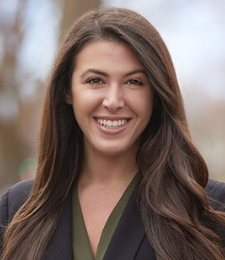
WHAT THIS MEANS, FROM AYLIX JENSEN OF MOSS & BARNETT: Several consumer advocacy organizations voiced support for a request by a group of trade associations in the financial services industry urging the Federal Communications Commission (“FCC”) to temporarily apply the “emergency purposes” exception under the Telephone Consumer Protection Act to phone calls and text messages relating to the COVID-19 pandemic. Specifically, pursuant to the request, the FCC would allow banks and financial services organizations to use automated dialing systems or prerecorded or artificial voice to communicate with consumers, without prior express consent of the called party, on essential matters such as the status of their home and auto loans, as well as relief and resources available relating to these debts.
This temporary exemption will ensure that consumers are kept in the loop, while not over-burdening the employees of the creditors. The consumer groups emphasized that the exemption must be clearly limited in time and scope, and must explicitly prohibit any debt collection or telemarketing communication as part of the calls. Should the FCC permit the temporary exemption, it will be critical for creditors to carefully scrutinize the language of the exemption to ensure full compliance.
Appeals Court Upholds Dismissal of FDCPA Case Over Interest Disclosure
The Court of Appeals for the Second Circuit has upheld a lower court’s dismissal of a Fair Debt Collection Practices Act case in which the plaintiff appealed because she filed an amended complaint while the motion to dismiss was still pending and the judge granted the defendant’s motion without considering the amended complaint. More details here.
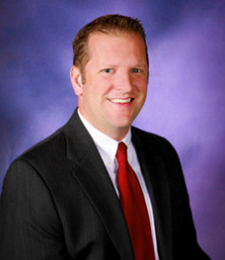
WHAT THIS MEANS, FROM BOYD GENTRY OF THE LAW OFFICE O BOYD GENTRY: Two points should be taken from this case. First, the word “may” means “may” and includes “future possibility”. Here, the debt collector included a balance disclosure indicating that “the amount due” “may be greater” on the “day you pay” “[b]ecause of interest, late charges, and other charges that may vary from day to day.” The plaintiff asserted a claim under Section 1692e believing the letter was “materially false, deceptive, and misleading” because the debt collector did not previously charge interest and did not intend to so in the future. The full disclosure read as follows:
As of the date of this letter, you owe $26,610.58. Because of interest, late charges, and other charges that may vary from day to day, the amount due on the day you pay may be greater. Hence, if you pay the amount shown above, an adjustment may be necessary after we receive your check, in which event we will inform you before depositing the check for collection.
The district court granted the defendants’ motion to dismiss reasoning that the letter was not inaccurate or misleading to the least sophisticated customer so long as one of these three components (interest, late charges, or other charges) may accrue. The court of appeals affirmed, noting that the amended complaint did “not allege that interest could not accrue. Rather, the amended complaint simply asserts that Defendants-Appellees did not previously charge interest and did not intend to do so in the future. Even if there is no current intention to charge interest, the mere existence of that future possibility is completely consistent with the word “may” in the Letter’s language.”
The second point from Pettaway is for practitioners in the Second Circuit. Defense counsel should plan accordingly when filing a motion to dismiss, as the Second Circuit has a “rule” “that when a plaintiff properly amends her complaint after a defendant has filed a motion to dismiss that is still pending, the district court has the option of either denying the pending motion as moot or evaluating the motion in light of the facts alleged in the amended complaint.”
Former CFPB Director Cordray Calls For ‘Vigorous’ Oversight of Collectors in COVID-19 Whitepaper
Richard Cordray, the former director of the Consumer Financial Protection Bureau, has published a whitepaper/memo aimed at Congressional leaders and his successor about how the regulator should be handling itself during the coronavirus pandemic, and calling for “vigorous” oversight of debt collectors because debt collectors are more likely to harass consumers who are deeper in debt because of the crisis. More details here.
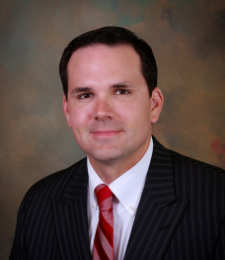
WHAT THIS MEANS, FROM PORTER HEATH MORGAN OF MALONE FROST MARTIN: Richard Cordray’s comments should come as no surprise given what was revealed about his view of the role regulatory enforcement during his tenure at the CFPB.
Readers may recall that during the time of his exit as director of the CFPB, Cordray revealed his view of regulation by enforcement and that it was Bureau’s “job” to push the envelope on prosecution of theories. Specifically, Cordray stated that he didn’t want to run the Bureau to win every prosecution, “that means you’re shying away from gray areas, staying well away from the line…it means you’re not willing to be aggressive and take risks…if you lose every now and then and you get called overreaching, that’s probably means you’re getting right up to the proper limits of your authority.”
Indeed Cordray’s call for “vigorous oversight” is right in line with his last public comments. The bottom line is Cordray has a different view of the role of regulatory enforcement by the federal government than many in the industry. It would be great to see Cordray engage with the industry to discuss or debate the differences of his view as opposed to those that came under his authority. But until then, the industry should pay attention to Cordray’s comments only to the extent that Cordray has influence in his role in California, or his ability to drive new media to direct articles that highlight his viewpoint and place our industry under scrutiny.
I’m thrilled to announce that Bedard Law Group is the new sponsor for the Compliance Digest. Bedard Law Group, P.C. – Compliance Support – Defense Litigation – Nationwide Complaint Management – Turnkey Speech Analytics. And Our New BLG360 Program – Your Low Monthly Retainer Compliance Solution. Visit www.bedardlawgroup.com, email John H. Bedard, Jr., or call (678) 253-1871.









